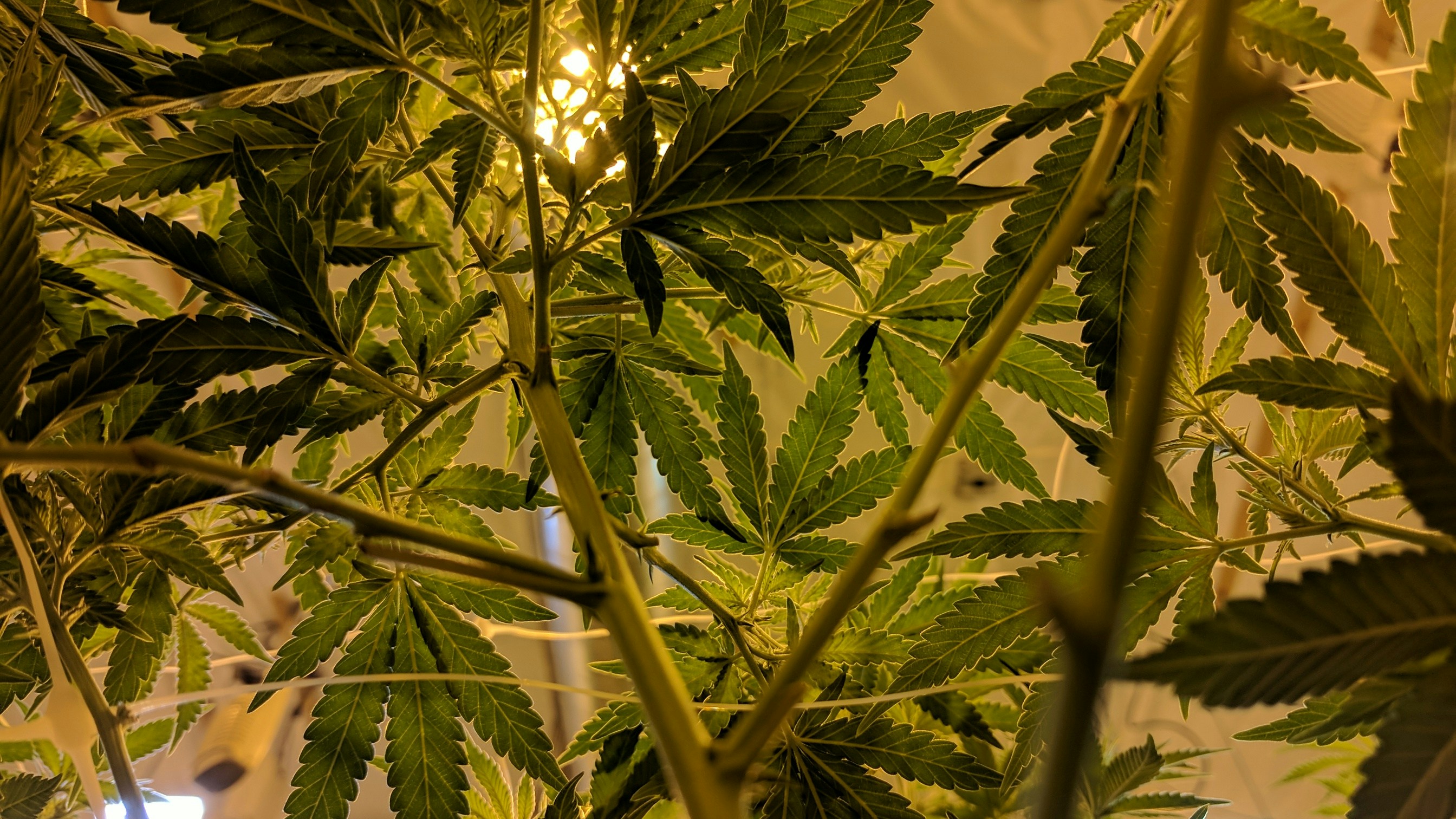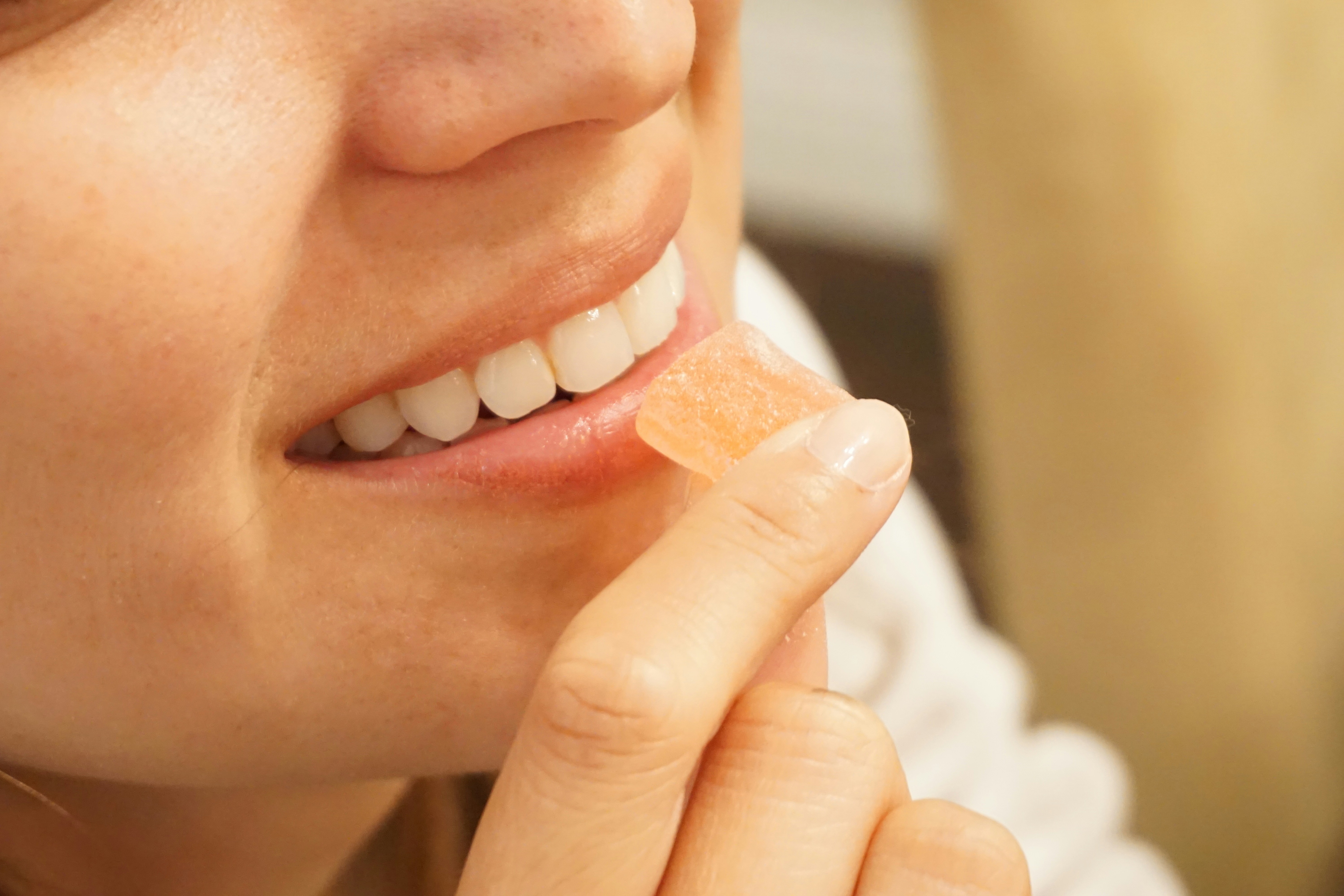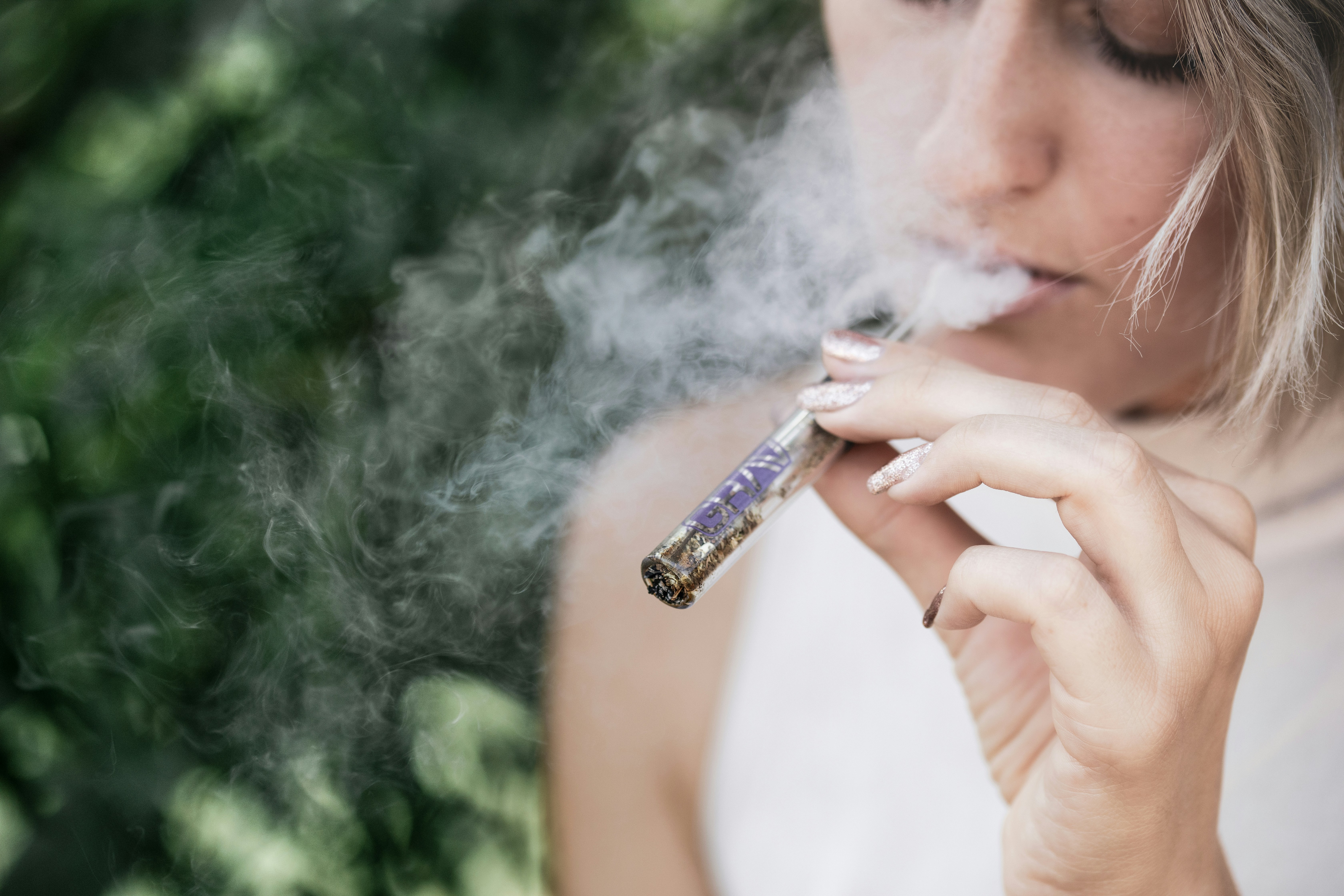THCA is making waves in the cannabis industry for its non-psychoactive nature and potential to turn into psychoactive THC when heated. But not all THCA products are made equal.
There are two main branches of THCA products: THCA smokables and edibles. The former offers immediate psychoactive benefits, and the latter offers non-psychoactive benefits that last much longer.
But which one is right for you? What are the pros and cons and each type of ingestion? Find out what kind of THCA is right for you!
What is THCA?
THCA, or tetrahydrocannabinolic acid, is a cannabinoid found in abundance in raw, unprocessed cannabis plants.
Unlike its more famous counterpart THC, THCA is non-psychoactive, meaning it does not produce the "high" commonly associated with cannabis use.
THCA is essentially the acidic precursor to THC; when cannabis is heated, as in smoking or cooking, THCA undergoes decarboxylation and transforms into THC, which has psychoactive effects.
Is THCA Legal in the USA?
Legally, the status of THCA in the United States is somewhat nuanced.
While THCA products are considered federally legal under the Farm Bill of 2018, provided they are made from hemp and contain no more than 0.3% THC on a dry-weight basis, individual states have their own rules.
Although some states adhere to the Farm Bill’s ruling, other states have created their own state laws when it comes to the possession, distribution, and usage of hemp-derived products like THCA. Some states have restricted access, while others have banned their purchase and use outright.
When dealing with any cannabinoid product, including THCA, it’s really important to be aware of your state’s laws. You don't want any trouble with Johnny Law, and you certainly don't want to trust retailers that illegally ship or sell hemp in these states.
If they're breaking that law to make a buck, what other corners are they cutting?
Finding Reliable THCA Sources
When it comes to finding a retailer or manufacturer to trust with your cannabinoid products, there are a few things to look out for. Here are some of the most important:
- Lab Testing: Any, and we do mean any, reputable brand always third-party lab tests their products to ensure adequate dosages and contents, as well as to confirm no additives or contaminants are present in your product.
- Organic Hemp: The hemp plant is remarkably absorbent, meaning anything sprayed on the light plant can be sucked up by it and end up in your product. Opt for sellers who only use organic, non-GMO plant material that isn't sprayed with pesticides or herbicides.
- Customer Reviews: How do customers feel about the quality of the products being sold? How is their customer service? Does the brand care about you as a customer, or just about your money?
As a consumer, it’s your job to do your due diligence: Do some research on the brands you’re wanting to try. Look up the potential effects— positive and negative— of the cannabinoids you’re interested in.
Weed can be fun, but it needs to be enjoyed responsibly, and that responsibility starts at who you trust to deliver safe, high-quality cannabis goods!

Understanding Decarboxylation
Decarboxylation is a critical process in the world of cannabis, as it is responsible for converting THCA into THC, thus activating the psychoactive properties of the plant.
This chemical reaction involves the removal of a carboxyl group from the THCA molecule, triggered by heat.
The decarboxylation process can occur naturally over time as cannabis dries and ages, but it is most efficiently achieved through exposure to heat, such as when smoking, vaping, or cooking cannabis.
The Science Behind Decarboxylation
The chemical process of decarboxylation is fascinating and integral to the cannabis experience.
When THCA is exposed to heat, the carboxyl group (-COOH) is removed from the molecule, releasing carbon dioxide (CO2) and converting THCA into THC.
This transformation alters the molecular structure, enabling the compound to interact with the body's endocannabinoid system, which regulates various physiological processes including mood, discomfort sensations, and appetite.
Decarboxylation can be achieved through various methods, each with its own advantages and disadvantages.
Smoking and vaping provide immediate decarboxylation and rapid onset of effects. Cooking cannabis at the correct temperature also achieves decarboxylation, making it suitable for creating psychoactive edibles.
Why is Decarboxylation Important?
The importance of decarboxylation cannot be overstated for those seeking the psychoactive effects of cannabis.
Without this process, consuming raw cannabis would result in the intake of non-psychoactive THCA, which does not produce the euphoria or mind-altering effects associated with THC.
So, why is decarboxylation important? Because without it, weed wouldn’t cause that amazing, buzzy, euphoric high we all know and love!

THCA Edibles: Gummies, Chocolates, & More
THCA edibles are food products that are infused with THCA instead of THC.
These products are designed to deliver the benefits of cannabis without inducing a high, making them an appealing option for individuals seeking therapeutic effects without psychoactive side effects.
The Effects of THCA Edibles
One of the most significant characteristics of THCA edibles is that they do not undergo the process of decarboxylation.
Since THCA remains in its original form, consumers can experience its potential therapeutic benefits without the psychoactive effects of THC.
This makes THCA edibles, such as gummies, suitable for individuals who need relief but prefer to avoid the high associated with cannabis use.
THCA edibles provide a way to harness the raw benefits of the cannabis plant. This can be particularly beneficial for medical cannabis users who require consistent therapeutic effects without the variability that can come with the psychoactive properties of THC.
THCA edibles are also known for their longer-lasting effects compared to other consumption methods.
When consumed, the THCA is slowly released into the bloodstream through the digestive system, resulting in a gradual and sustained effect.
This extended duration can provide prolonged relief, making edibles a preferred choice for individuals dealing with issues that require long-term management.
The slow and steady release of THCA also means that users can experience a more stable and predictable effect, which is particularly beneficial for managing conditions such as discomfort or stress.
Other Pros of THCA Edibles
Edibles offer a highly discreet method of consuming cannabis.
Unlike smoking or vaping, edibles do not produce any telltale odors or visible smoke, making them easy to consume in public or private without drawing attention.
This discretion can be particularly valuable for individuals who need to use cannabis regularly but prefer to keep their usage private due to social, professional, or personal reasons.
The discreet nature of edibles also makes them an excellent option for those who need to dose up during the day while maintaining a professional appearance.
Edibles can be easily integrated into daily routines without disrupting normal activities.
Edibles are also known to be easier to dose than methods like vape pens or pre-rolls. With edibles, you know exactly how much THCA you’re getting per bite, allowing you to personalize your experience with the compound.
Another primary benefit of consuming THCA edibles is the avoidance of the harmful effects associated with smoking.
Smoking cannabis can irritate the lungs and respiratory system, potentially leading to respiratory issues if done consistently.
By opting for edibles, consumers can avoid these risks and enjoy the benefits of cannabis without compromising their respiratory health.
This is particularly important for individuals with pre-existing respiratory conditions or those who are health-conscious and prefer to avoid inhaling smoke or vapor.
The Cons of THCA Edibles
A notable drawback of THCA edibles is the delayed onset of effects.
Unlike smoking or vaping, which provide almost immediate results, edibles must pass through the digestive system before the THCA is absorbed into the bloodstream.
This process can take anywhere from 30 minutes to 2 hours, depending on various factors such as metabolism and the contents of the stomach.
The delayed onset can make it challenging to gauge the appropriate dosage, leading some users to consume more than intended in an attempt to achieve faster results.
This can result in overconsumption and potential discomfort.
Lastly, most people consider THCA edibles being non-psychoactive as a con within itself. Although THCA does have other potential benefits, and is being studied by the scientific community for its many possible applications, eating raw THCA won't get you buzzed.

THCA Smokables: Flower, Pre-Rolls, & Concentrates
THCA smokables are cannabis products that are smoked or vaped, causing the THCA to undergo decarboxylation and convert into THC.
This method is preferred by those seeking immediate and psychoactive effects. Smokables can include THCA flower, THCA pre-rolls, and THCA concentrates.
Because all of these products undergo decarboxylation during the process of ingestion, they will all get you stoned. The potency of their effects, however, may vary. But we’ll get into that in a second.
First, let’s go over some of the benefits of THCA smokables.
The Pros of THCA Smokables
Smoking or vaping THCA results in almost instantaneous effects due to the rapid absorption of THC through the lungs.
This quick onset allows users to feel the effects within minutes, making it easier to manage their experience and adjust their intake as needed.
The immediacy of the effects makes smokables an excellent choice for individuals who need rapid relief from symptoms such as stress, discomfort, or lack of sleep.
It also allows for more precise control over the experience, as users can take small amounts and wait to see the effects before consuming more.
For those seeking the psychoactive effects of cannabis, smoking THCA is the preferred method. The decarboxylation process activates THC, providing the characteristic high associated with cannabis consumption.
This can be particularly enjoyable for recreational users who appreciate the euphoria and altered perception that THC provides.
The psychoactive effects of smoking THCA can also have therapeutic benefits, such as enhancing mood and creativity. This makes smokables a versatile option for both recreational and medical users.
The Cons of THCA Smokables
Smoking cannabis can pose health risks, particularly to the respiratory system. Inhaling smoke can irritate the lungs and lead to respiratory issues if done with frequency.
The combustion process also produces harmful byproducts, such as tar and carcinogens, which can have long-term health implications.
These risks make smoking a less attractive option for health-conscious individuals or those with pre-existing respiratory conditions. Alternatives such as vaping, which heats the cannabis without combustion, may offer a safer option, but they still carry some respiratory risks.
Additionally, the effects of smoking THCA are typically shorter in duration compared to edibles. While the onset is immediate, the effects usually last between 1 to 3 hours, requiring more frequent consumption to maintain the desired level of relief.
This can be less convenient for individuals who need sustained effects throughout the day.
The shorter duration of effects can also lead to more frequent smoking sessions, which may increase the overall exposure to potential respiratory risks.

The Potency Playoffs: Flower vs. Pre Rolls vs. Concentrates
When it comes to THCA smokables, potency is a key consideration that varies significantly across different product types, such as flower, pre-rolls, and concentrates.
Understanding these differences can help users make more informed choices about their consumption.
- THCA Flower: Typically, THCA flower boasts a moderate potency level, offering a balanced effect that can range from mild to strong, depending on the strain and its THCA content. This makes it a versatile option for both beginners and experienced users.
- Pre-Rolls: Pre-rolls are essentially joints made from THCA flower, providing the same moderate potency but with added convenience. The potency of pre-rolls depends on the quality and THCA content of the flower used, but generally, they offer a consistent and reliable experience similar to smoking loose THCA flower.
- Concentrates: THCA concentrates, such as oils, waxes, and shatters, are the most potent form of THCA smokables. These products are created through processes that extract and concentrate THCA, resulting in a product that is significantly more potent than flower or pre-rolls. The high concentration of THCA means that even a small amount can produce intense effects, making concentrates ideal for experienced users seeking a powerful experience.
Personalizing Your THCA Experience
Ultimately, the choice between THCA edibles and smokables comes down to personal preference and individual needs.
Some users may prioritize the health benefits and discretion offered by edibles, while others may prefer the immediate and psychoactive effects of smoking.
By considering factors such as onset time, duration, health impact, and social implications, consumers can tailor their THCA experience to best suit their lifestyle and therapeutic goals.
For those new to THCA, it may be helpful to experiment with both methods to determine which one provides the desired effects.
Consulting with a healthcare professional or a knowledgeable cannabis specialist can also provide valuable guidance and ensure a safe and effective experience.
Here’s a quick comparison chart in case you need a clearer picture:
|
Feature |
THCA Edibles |
THCA Smokables |
|---|---|---|
|
Decarboxylation |
No |
Yes |
|
Onset Time |
Delayed (30 minutes to 2 hours) |
Immediate (within minutes) |
|
Duration |
Longer-lasting (4-8 hours) |
Shorter duration (1-3 hours) |
|
Psychoactive Effects |
No |
Yes |
|
Discretion |
Highly discreet |
Less discreet |
|
Dosage Control |
Easier to dose |
Harder to dose |
So, is Smoking or Eating THCA Better?
Both THCA edibles and smokables offer unique advantages and disadvantages, catering to different preferences and needs.
Edibles provide a non-psychoactive, discreet, and long-lasting option, ideal for those seeking potential benefits without the high. However, they come with the challenges of delayed onset.
Smokables, on the other hand, offer immediate and psychoactive effects with better dosage management but pose some risks and shorter duration of effects.
Choosing the right method of THCA consumption ultimately depends on individual preferences, desired effects, and lifestyle.
It’s essential to consider your desired effects (psychoactive or non-psychoactive), the onset time, and the duration of effects when deciding between edibles and smokables.
Both methods have their place in the world of cannabis consumption, and understanding the pros and cons will help you make an informed decision that aligns with your needs and goals.
Whether you opt for the convenience and discretion of edibles or the immediacy and psychoactive experience of smokables, being well-informed will ensure a safer and more effective use of THCA.
When it comes to picking THCA products for you, just go with your gut. Either way, incorporating THCA into your daily life can be a pleasant, positive addition. But don't take our word for it, try THCA yourself today!










